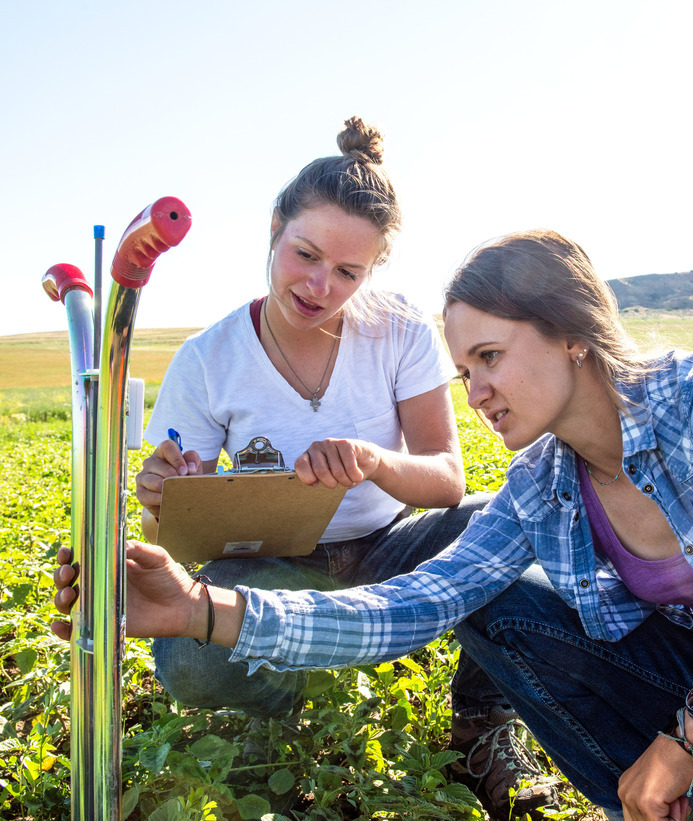What is Plant Sciences?
Wyoming is your classroom. With full-time faculty based in Laramie as well as at research
and extension centers in Powell, Sheridan and Lingle, Wyoming, you will not only have
the chance to learn on UW’s main campus — with its farm and greenhouses — but also
through UW’s research and extension efforts statewide.
Our extension work, part of our roots as a proud land grant institution, allows you
to join our program as a colleague. You will work in research areas such as invasive
weed science and management, pest management, agronomy, horticulture and various aspects
of agroecological efficiency and sustainability and be able to communicate your findings
through UW’s outreach initiatives. Graduates from our program go on to pursue further
graduate studies or into careers in government, academia, extension programs, industry,
nonprofits and consultancies.
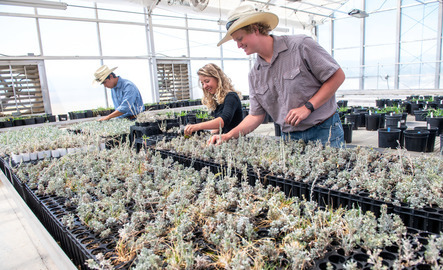
Our plant sciences degree programs allow you to match your degree to your individual interests. Plant sciences offers several specializations from which to choose, including:
- Crop Science
- Weed Science
- Agroecology
- Forage Agronomy
- Plant Pathology
- Horticulture
- Specialty Crop Production
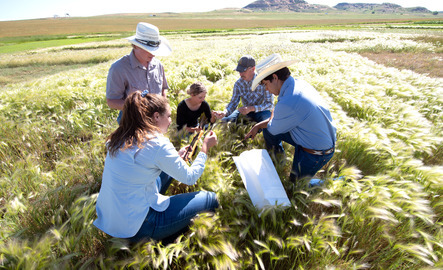
The Department of Plant Sciences offers an enormous diversity of classes. These are a few you might take:
- Crop Yield Physiology
- Greenhouse Design and Management
- Seed Science and Technology
- Weed Science and Technology
- Invasive Plant Ecology
- Plant Pathology
- Plant Breeding
- Sustainable Agriculture
- Organic Food Production
- Forage Crop Science
View the complete Plant Sciences M.S. degree program curriculum.
View the complete Plant Sciences Ph.D. degree program curriculum.
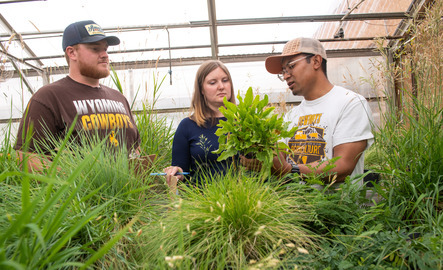
What Can You Do With a Plant Sciences Master’s or Doctoral Degree?
Equipped with academic knowledge, research and community-based experiences, graduates of M.S. and Ph.D. programs in plant sciences are quickly employed in a variety of industry, government, nonprofit and academic positions. Many master’s graduates continue on to Ph.D. programs at places such as University of Nebraska-Lincoln, Virginia Tech, University of Idaho, Washington State University and UW.
UW Plant Sciences M.S. grads hold titles such as:
- Wyoming Weed and Pest Supervisor or Assistant County Supervisor
- Technician at Montana Ag Experiment Station
- Loan Officer with USDA-Farm Service Agency
- Conservation District Range Technician
- NRCS District Conservationist
- Variety Trials Manager at Pleasant View Gardens
- Suburbitat invasive weed management technician
- Faculty at University of Nebraska-Lincoln
- Field Development Representative at BASF
Ph.D. graduates hold titles such as:
- Chief Science Officer at Plenty
- Crop Protection Technology Development Representative with Bayer Crop Science
- Research Scientist at Crop Research Institute (Ghana)
- Research Scientist at USDA Agricultural Research Service
- Scientist at Rodale Institute
- Faculty at University of Idaho
- Faculty at California State University-Monterey Bay
- Agronomy Specialist at State University of Missouri
A graduate degree in plant sciences offers advanced training in areas like crop production, genetics, soil science and plant pathology, preparing students to address complex challenges in agriculture and environmental sustainability. With hands-on research and interdisciplinary coursework, you'll develop the expertise needed for careers in academia, industry, government and nonprofit sectors. Whether you're aiming to improve food systems, advance biotechnology or contribute to ecological solutions, UW's plant sciences graduate program gives you the tools to make a real-world impact.
Plant science can be a challenging discipline, but it's also extremely rewarding. This unique field combines biology, chemistry and environmental science with data analysis to understand how plants grow, interact with their environments and contribute to ecosystems and agriculture. Students and professionals in plant science need strong problem-solving skills, attention to detail and the ability to apply scientific knowledge in real-world contexts ranging from crop production to conservation. The interdisciplinary nature of the field and the need for hands-on research can make it demanding, but it’s also a dynamic and impactful area of study.
UW is home to a 1.8-acre student/research farm that uses organic methods to grow vegetables for Community-Supported Agriculture (CSA) shares and the Laramie Farmers Market.
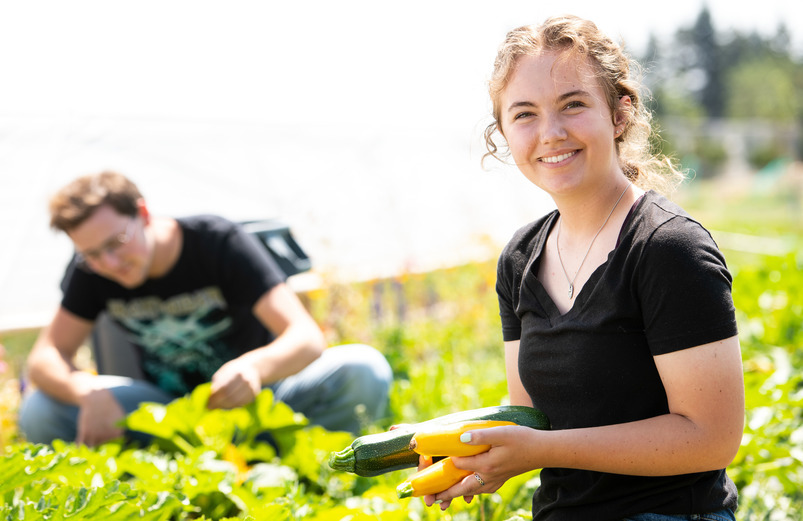
"I try to instill the Wyoming spirit of grit, determination and pride within every student I come in contact with."
- Elizabeth Mosqueda, Ph.D. ’19 | Bob and Sue Johnson Professor of Crop Management at California State University—Monterey Bay. | Dr. Mosqueda's UW Ph.D. research explored how to use alternative non-chemical tactics to manage herbicide-resistant weeds. Her research is critical to developing healthier and more sustainable agricultural systems for the environment, farmers and farmworkers.

